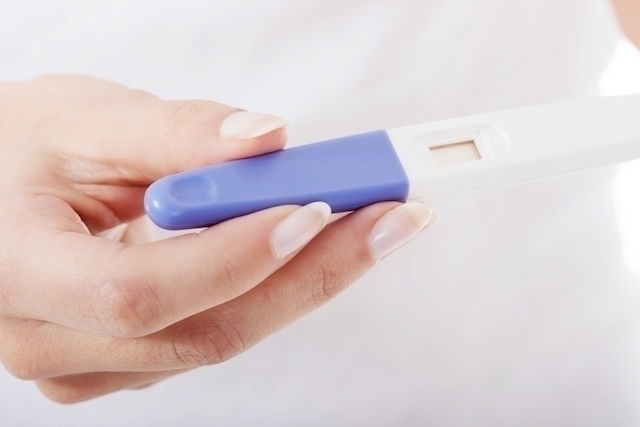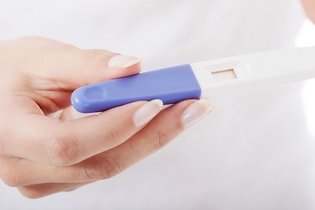Pregnancy tests can produce false negative results due to completion error (doing one too early), test error (an expired test), or due to a health condition that impacts final results (like an irregular period or breastfeeding). Home pregnancy tests are very accurate if done according to the package instructions and if completed at the right time.
Even though urine tests are usually accurate, there are other unexplainable changes to your menstrual cycle that can cause concerns and doubts with the result, like when your test is negative, but your period is still late.
If you suspect you have a false negative pregnancy test, you can repeat the test in three to five days. The best way to confirm a suspected pregnancy is with a blood test that confirms the presence of bHCG hormones in the blood.

What causes false negatives?
The most common reasons for a false negative home pregnancy test include:
1. Completing a test too early
This is one of the most common reasons for a false negative test. Many women will complete a pregnancy test as soon as they feel symptoms of early pregnancy, like sore breasts or changes to vaginal discharge.
However, the best way to guarantee a correct result is to wait for your period to be late, and then to do the test a few days later. This allows the body enough time to produce sufficient HCG hormones to be detected in a urine test. Read more about how to correctly complete a home pregnancy test.
2. Irregular cycles
When your menstrual cycle is irregular, negative pregnancy tests are actually more likely to occur. This is because, just like above, the urine test is completed too early, before a period is actually late, resulting in a negative test.
If you cycles are usually irregular, you should only complete a test two to three weeks after your predicted period. You should track your period symptoms to have a better understanding of when your period is due to start.
3. Ectopic pregnancy
An ectopic pregnancy is a rare condition. It occurs when a fertilized egg implants outside of the uterus, usually in the fallopian tubes. In these cases, the body takes longer to produce HCG hormone, and the result can appear negative even if fertilization has occurred.
This type of pregnancy is a medical emergency that should be terminated as soon as possible, as it can cause serious damage to the woman’s reproductive system. A few signs that can indicate a possible ectopic pregnancy are intense abdominal pain, vomiting, vaginal bleeding, or feeling of abdominal heaviness. If you have these symptoms, proceed immediately to the hospital to confirm diagnosis and initiate treatment.
4. Breastfeeding
When a woman is breastfeeding, the body takes longer to return to its initial pre-pregnancy state. Therefore, it is possible for a woman’s cycle to be irregular initially, even though she used to have a regular cycle before.
This may result in a false negative, as an expected period is not actually delayed yet, leading to an early pregnancy test.
5. Expired or mishandled test
This may be the rarest cause, however it is possible that a home pregnancy test has expired and no longer functioning properly. When a test is not used by its valid date, the presence of HCG may not be detected, resulting a negative test.
It is very important to check the expiration date on the package before using it. Additionally, if pregnancy tests are not stored properly, even though they are within the expiry date, they may not give an accurate result. For those reasons, if you suspect that the test is not reporting the correct result, you should complete another one.
Learn about how to complete a pregnancy test at home and when the best time to do it is.
Late periods
If your period is delayed and a pregnancy test confirms a negative result, you are advised to repeat the test in a few days. If the second test is still negative even when your period is still late, likelihood of pregnancy is low. There are many factors that can influence your cycle and cause a delayed period when you are not pregnant.
Some causes of a delayed period are:
- Excess stress and anxiety;
- Engaging in intense physical exercise for a long time;
- Thyroid problems;
- Very restrictive diets.
Learn about what else can cause a late period.
If your period is late and multiple home pregnancy tests confirm a negative result, you should consult your doctor to identify whether there is another factor influencing the delay. They may be able to indicate appropriate treatment based on the diagnosis. You can also check out these teas for a late period to induce menstruation.








